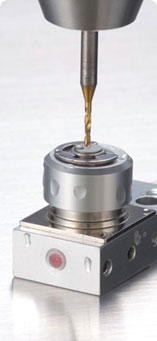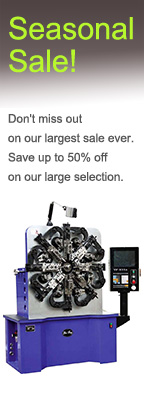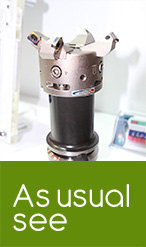- Test & Measurement
-
Analyzers
-
Oscilloscope
-
Meters
-
Generators
-
DC Power Supply
-
Optical Communications
-
Other Test Equipment
-
Accessories
-
Probes
-
Software
-
AC Power Sources
-
Accessory Kits
-
Amplifiers
-
Antenna
- View All Categories >>
-
- Semiconductor & PCB
-
Front End
-
Back End
-
PC Board Assembly
- View All Categories >>
-
- Surplus & Liquidation
- Computers & Electronics
- Construction
-
Aggregate Equipment
-
Air Compressors
-
Asphalt / Pavers / Concrete Equipment
-
Compactors
-
Cranes
-
Crawler Loaders
-
Dozers
-
Drills
-
Dumpers
-
Excavators
-
Forestry Equipment
-
Forklifts
-
Generator Sets
-
Lifts
- View All Categories >>
-
- Biotech & Life Sciences
-
Biotechnology
-
Cell Counters
-
DNA Sequencers
-
DNA Synthesizers
-
Densitometers
-
Electrophoresis
-
Electroporation
-
Fermenters / Bioreactors
-
Flow Cytometers
-
Gel Dryer
-
Hybridization Ovens/Incubators
-
Immunoassay Systems
-
Microarray Scanners
-
Microplate Dispensers
- View All Categories >>
-
- Machinery
-
Abrasives
-
Air Compressors
-
Air Cooling & Heating Equipment
-
Bar Machinery
-
Bending & Forming Equipment
-
Boring Mills
-
Broaching Machines & Keyseaters
-
CNC Machinery
-
Chemical & Processing Equipment
-
Chip, Recycling & Scrap Equipment
-
Cleaning, Painting & Washing Equipment
-
Coil Processing Equipment
-
Construction Equipment
-
Die Casting Machines
- View All Categories >>
-
- Commercial Trucks
-
Heavy Duty Trucks
-
Medium Duty Trucks
-
Light Duty Trucks
-
Trailers
- View All Categories >>
-
- Chemical Equipment
-
AGITATORS
-
AIR FIN COOLERS
-
BLENDERS
-
BLOW MOLDERS
-
BLOWERS
-
BOILERS
-
CENTRIFUGES
-
COLUMNS
-
COLUMNS DBL DIA
-
COMPLETE PLANTS
-
COMPRESSORS
-
CONVERTERS
-
CONVEYORS
-
COOLING TOWERS
- View All Categories >>
-
- Apparel and Textile
-
Textile Machinery
-
Apparel & Textile Machinery Parts
-
Apparel Machinery
-
Home Textile Product Machinery
-
Apparel Accessories Machinery
-
Leather Production Machinery
- View All Categories >>
-
- Medical Equipment
-
Beds, Stretchers and Furniture
-
Cardiology
-
Consumables and Supplies
-
Cosmetic
-
Defibrillator
-
Dental
-
EMS/Rescue
-
Endoscopy
-
Exam Room
-
Homecare/Rehab
-
Imaging
-
Laboratory
-
Monitors/ICU/CCU
-
Neonatal
- View All Categories >>
-
- Printing Equipment
-
Press
-
Prepress
-
Postpress
-
Guillotines
-
Packaging
-
Misc
-
Flexo Printing
-
Web offset
-
Screen Printing
-
Package deals
-
Spare Parts
- View All Categories >>
-
- Packaging Equipment
-
Accumulators
-
Bag Dumps
-
Bag Sealers
-
Bagging Machines
-
Blister Packaging Lines
-
Blister Packers
-
Blister Sealers
-
Blow Fill Seal
-
Bottle Rinsers
-
Canning Equipment
-
Cap Sorters
-
Cappers
-
Cartoners
-
Case Erectors
- View All Categories >>
-
Simplifying Tax Rules for Small Business
04/09/2013 23:06:32
The draft contains several core components that simplify tax compliance and provides certainty to know that tax codes will remain constant over a period of years. Small businesses stand to benefit from a simpler accounting method, having added time to prepare returns, and a permanent tax break allowing them to immediately deduct the costs of new equipment.
According to the Tax Foundation, a non-partisan research group based in Washington, D.C., the requirement that legitimate business expenses be written off over a period of years, or even decades, results in “businesses [that] are reluctant to invest, since they are allowed to deduct only a portion of their investments immediately and the rest over a period of years or decades, depending on rules that never made sense.”
Brian Pemberton, the controller for Bedford Machine & Tool, in Bedford, Ind., said, “We are a capital-intensive business that invests capital based on business opportunities, and any tools such as the Section 179 deduction that allow us to conserve cash to reinvest into the business are good tools. The cash saved may then be reinvested in new jobs, working capital, etc., to help spur the economic growth of our business and the growth of the economy in general.”
Pemberton referred to the permanence of Section 179 expensing at the threshold of $250,000, one of the key draft proposals and which is set to drop to just $25,000 in 2014. Bedford Machine & Tool is a regional player in the tool and die industry, with a primary focus on automotive die work. It currently has 53 employees and generates approximately $10 million in sales a year.
Other parts of the proposal are aimed at simplifying the tax rules regarding pass-through businesses, i.e. those businesses that file under the individual income tax code, such as partnerships, S-corporations, and sole proprietors. It includes two separate options: one that revises current rules and a second that replaces current tax rules with a new unified pass-through process.
“Pass-through businesses play an important role in the economy and have been a growing source of entrepreneurship,” according to the National Federation of Independent Business (NFIB). “Therefore, the tax implications of choosing a pass-through entity should play a major role in the tax reform debate.”
The Hill’s Finance & Economy blog reports that Representative Sandy Levin (D-Mich.), the ranking Democrat at Ways and Means, noted the draft plan includes several changes called for by President Barack Obama. Thus far the proposals have been well received by small-business advocates, tax professionals and manufacturers.
Charlie Egerton a shareholder at the law firm of Dean, Mead, Egerton, Bloodworth, Capouano & Bozarth, P.A., and past chair of the American Bar Association’s Section of Taxation, the nation’s largest organization of tax lawyers, said the association has been closely following the efforts to achieve tax reform. He reports that Representative Camp’s most recent proposals have been extremely well-received.
“Chairman Camp has been very careful to get bi-partisan participation in the development of these proposals,” Egerton explained. “There have been numerous hearings, they have good substance and are well thought through.”
Dan Danner, chief executive of the NFIB, also praised the draft, saying, “Chairman Camp’s focus on making the tax code fairer and simpler for not just big businesses, but also small businesses, is commendable.”
“We are pleased by Chairman Camp’s efforts to move this debate forward by offering this latest discussion draft specifically focused on tax reforms for small businesses,” Dorothy Coleman, vice president of tax and domestic economic policy for the National Association of Manufacturers (NAM), added. “If we stand still with our current overcomplicated, burdensome system, we will watch other nations surpass America in the global marketplace.”
The National Small Business Association is continuing to study the draft, but praises the effort for “highlighting and developing a small-business-specific proposal, particularly given the disproportionate tax burden small businesses bear.”
Other key proposals of the draft include:
- Simplification and an increase from $5 million to $10 million in the threshold for small-businesses using cash accounting; and
- An increase from $5,000 up to $10,000 in the deductibility of start-up expenses, including operational costs.
“In regards to government compliance reporting, the requirements get more onerous every year, as new ones are implemented,” Pemberton said. “I have seen these requirements grow in my 20 plus years, and I don’t understand why the government never removes any of them. It truly is a global economy and any attempt by our government to streamline the tax code and reporting requirements helps us to be competitive in that global environment and is a good thing.”







